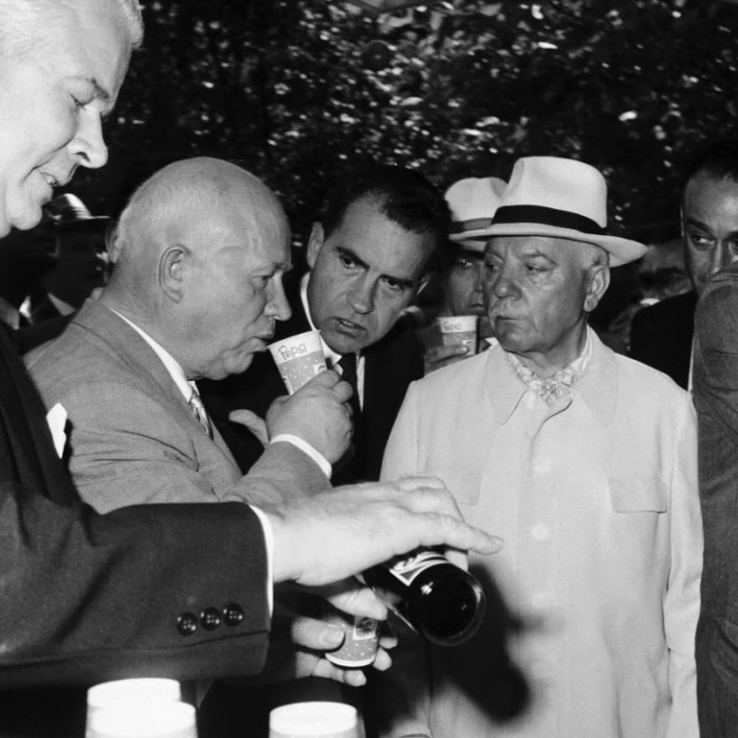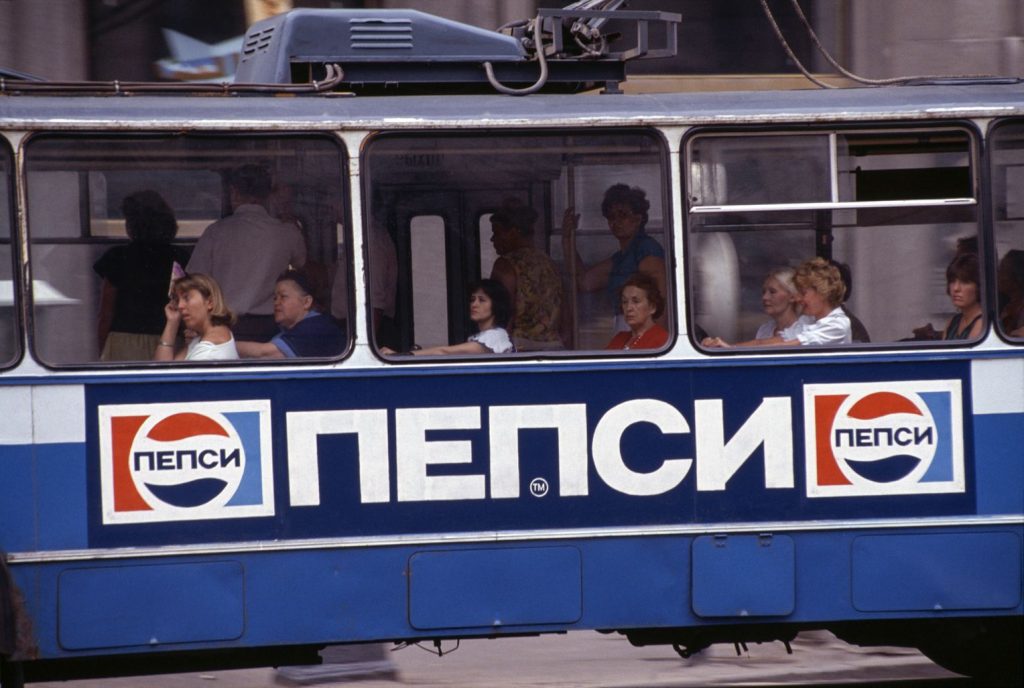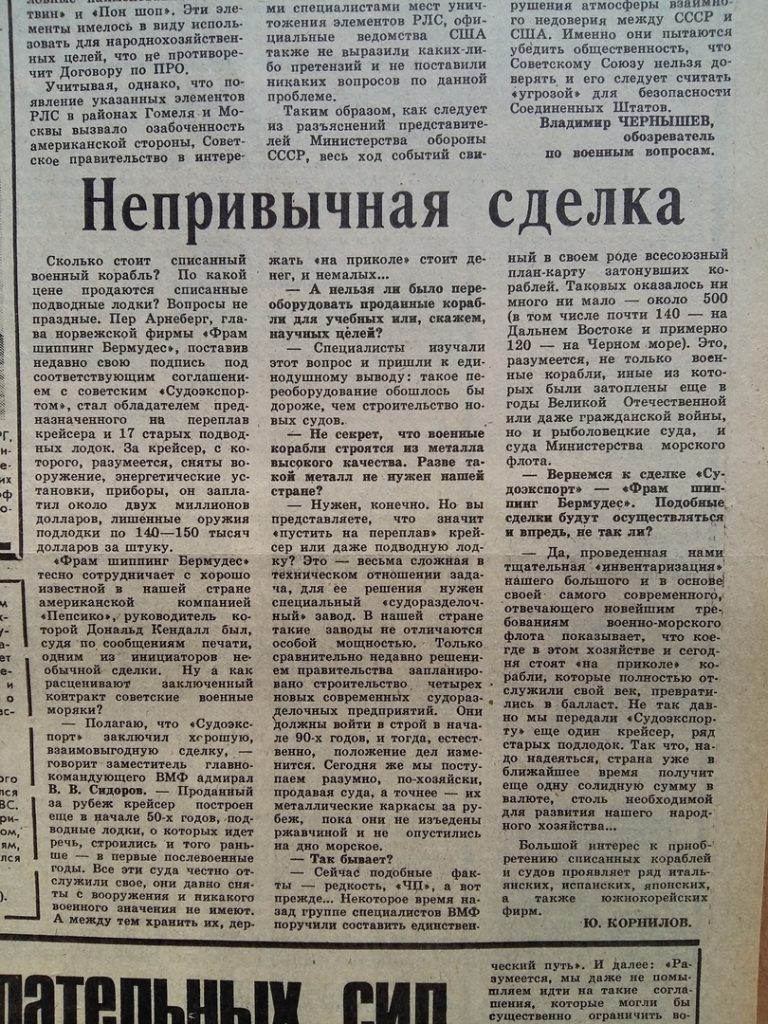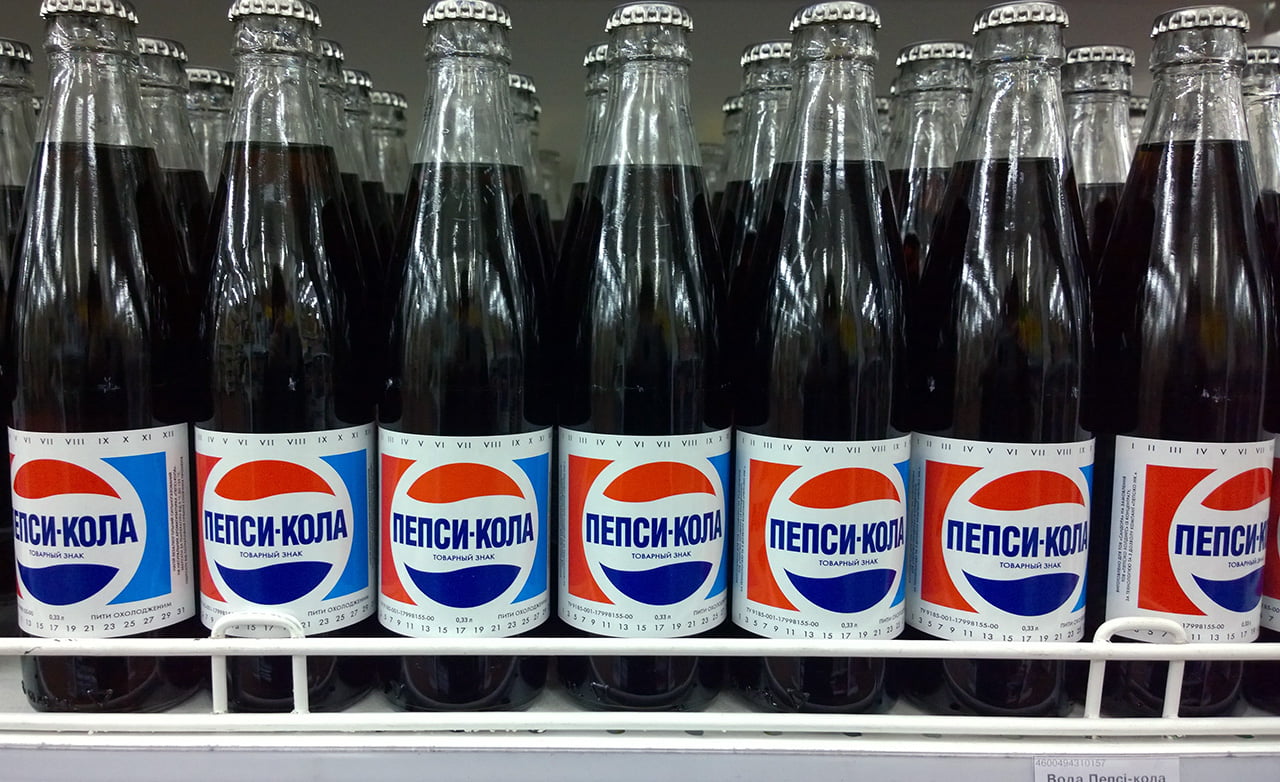Several major media outlets have published stories detailing an unusual deal between the Soviet government and the manufacturer of a popular soda. We have checked whether their content is accurate.
In the summer of 2019 on the RIA Novosti website came out text by Natalia Dembinskaya “Barter our way: how the USSR exchanged its navy for Pepsi soda.” The author says that in the late 1980s, “the soft drink manufacturer received an entire flotilla of Soviet warships at its disposal” and for a time even became one of the ten “largest naval powers in the world.” In particular, Dembinskaya claims: in 1989, “under the terms of a new agreement signed by Mikhail Gorbachev, PepsiCo received 20 old warships for the supply of raw materials and equipment: 17 Project 613 submarines, a destroyer, a cruiser and a torpedo bomber.” Similar materials can be read, for example, at “InoSMI» And TJournal.
As the authors of the above-mentioned publications correctly report, the soda company PepsiCo entered the Soviet market long before perestroika. In 1959 in Sokolniki Park passed American National Exhibition, which was visited, in particular, by Nikita Khrushchev. Although the most famous episode of that event is the famous "kitchen debate", during which the First Secretary of the CPSU Central Committee and US Vice President Richard Nixon argued the advantages of socialism and capitalism, respectively, the event also became significant for PepsiCo. During the exhibition, Khrushchev (as well as ordinary Soviet citizens) was given a taste of Pepsi soda - the photograph with the leader of the USSR and a paper cup became famous.

However, the production of soda in the USSR began much later. In 1973, the head of PepsiCo Donald Kendall and the head of Soyuzplodimport A. Nikolaev signed a five-year contract to produce 3 million cases per year - a symbolic volume compared to the 800 million cases sold in the United States a year earlier. The company invested its own funds in the construction of a plant in Novorossiysk, the purchase of equipment and personnel training. Note that PepsiCo did not supply the drink itself - concentrated syrup was supplied to the USSR, which was then diluted with local soda, bottled in local (non-branded) bottles and sold.
The main problem that faced the contracting parties was the method of payment. The Soviet ruble was not freely convertible, and Kendall suggested work on barter: his company supplies soda to the USSR, and in return receives Stolichnaya vodka, which it sells on the Western market. Similar conditions were spelled out in the new contract, prisoner in 1978; this agreement also implied the construction of several new PepsiCo factories in the USSR and an increase in sales.
By 1989, PepsiCo already had more than 20 factories in the USSR, and the company planned to expand production. But under the conditions of barter for vodka, this was impossible: the number of its consumers in the United States was not so large, and the company simply would not have recouped its investment. Among other reasons called and a sharp decline in the popularity of the drink after the Soviet invasion of Afghanistan. How reported The New York Times, the deal included "17 submarines (for a paltry $150,000 each), a cruiser, a frigate and a destroyer." The publication's reporter, Flora Lewis, stated in her text that the ships were originally sold as scrap metal (they, apparently, were quite old and were no longer used in the fleet). The note also said that PepsiCo had "bought new Soviet tankers (to transport oil, not drinks) in a joint venture with the Soviet Union and a Norwegian company that would lease or sell them." It was not possible to find confirmation that Mikhail Gorbachev personally participated in the signing of the agreement, as the authors of publications in the domestic media claim. Kendall in 1992, commenting for The Los Angeles Times mentioned “agreement” with the Chairman of the Council of Ministers of the USSR Nikolai Ryzhkov.

© Alexis DUCLOS / Gamma-Rapho via Getty Images
A year later, the USSR and PepsiCo concluded another major deal, estimated at $3 billion. This contract again includes an agreement to supply ten tankers, as well as an agreement to double PepsiCo’s presence in the Soviet market and the company to open two Pizza Hut restaurants in Moscow. In this case, Gorbachev is also not mentioned among the signatories of the agreement - The New York Times calls they included “high-ranking officials from the Commission on Agriculture and Procurement, Sudoexport and Soyuzplodimport.” Due to the collapse of the USSR, it was not possible to fulfill the agreements - the process involved enterprises that, after 1991, found themselves in different independent states, and with them had to enter into separate agreements.
What allows us to say that the story about the exchange of soda for submarines actually happened? First of all, its mention in publications of that time: in authoritative publications - The New York Times newspaper and the magazine Foreign Policy. And in 1990 about an unusual barter told during the Pugwash Conference on Science and World Affairs. Secondly, this episode was subsequently mentioned by other equally authoritative foreign media, for example BBC, The Washington Post And Der Spiegel. Thirdly, about barter wrote and in Soviet newspapers - for example, in Krasnaya Zvezda, the official publication of the USSR Ministry of Defense, where the correspondent’s text is supported by an interview with the Deputy Commander-in-Chief of the Navy, Admiral Vladimir Sidorov. True, for some reason this text does not mention a destroyer and a torpedo bomber.

On the other hand, almost all modern publications about unusual barter refer to a 1989 publication in The New York Times, while other major publications, as far as we can tell, ignored this deal - for the most part, it is very similar told small local American newspapers. At the same time, a month earlier in the Associated Press wrote on preliminary agreements to “pay off” with PepsiCo new ships that will be built jointly with the Norwegians. There was no talk of any ships written off for scrap metal. It is much more strange that we were unable to find any clarifying information about the transferred old ships - names, registration to one or another unit, etc. Perhaps the parties should have clarified this information after the conclusion of the agreement, but did not have time for one reason or another.
Thus, the existence of the deal was confirmed by one of the executives of PepsiCo in a comment for a reputable American publication and one of the leaders of the Soviet Navy in an interview with the official newspaper of the USSR Ministry of Defense. Although a contract could have definitively confirmed the fact of an unusual barter, we were unable to detect it. Blogger Cat.Cat, who writes on Pikabu, was interested in this topic. reported, that his interlocutors at the United Shipbuilding Corporation confirmed the fact of the transfer of decommissioned ships, but doubted that documents proving this would ever be discovered. We also note that in pursuit of a bright headline or a memorable statement, the authors of many notes overgeneralize the available data: not a single authoritative source confirms that the USSR promised to transfer operating (not decommissioned) ships to PepsiCo, and Mikhail Gorbachev personally participated in the signing of the agreements (although he was probably aware of the fact of the transaction). At the very least, popular assertions that as a result of the deal, PepsiCo temporarily became the owner of either the sixth or seventh largest fleet on the planet are also an exaggeration.
Most likely true
- S. Manukov. Pepsi-Cola for Nixon. How Donald Kendall charmed Khrushchev and took part in the disarmament of the USSR
- F. Lewis. Foreign Affairs: Soviets Buy American
- M. Parks. Doing Business: Bloc-Buster Deal: Pepsico’s $3-billion-plus Soviet expansion was the ‘deal of the century.’ Then, the deal crumbled along with the country. Here's how Pepsi put it back together
If you find a spelling or grammatical error, please let us know by highlighting the error text and clicking Ctrl+Enter.







